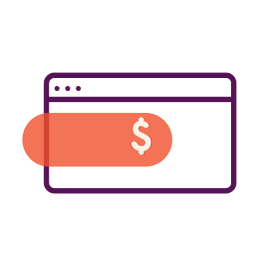There are times when you may very well want to be invisible: you’re a student and a teacher is calling on you to explain something you haven’t studied, for example, or you’re in the audience of a comedy show and the comedian is looking for someone to single out. Or perhaps you’re generally the type of person who doesn’t want to call attention to themself.
But when it comes to credit, being invisible can be a liability that can hold your business back from getting the capital or partnerships it needs to grow. When lenders can’t find a credit report about your business (or you personally), they may be hesitant to lend you money.
There are more “credit invisibles” than you may realize. Nearly 106 million American consumers can’t get traditional credit products because they are credit invisible, have a low credit score, or have no credit score, according to research by Experian® and Oliver Wyman.
If you’re worried your lack of credit is holding you back personally, or in your small business, find out what you can do about it here.
What Does Credit Invisible Mean?
The Consumer Financial Protection Bureau (CFPB) studied credit invisibles and in their report they divided these individuals into two groups:
1. Consumers without credit records at the major credit reporting agencies. They refer to this group as “credit invisibles.”
2. Consumers who have credit reports, but their reports are considered “unscorable,” because they don’t have enough credit history to generate a credit score, or credit activity is not recent enough to help calculate a score.
In this article, we’ll include both definitions as we discuss credit invisibles. You may relate to this problem because you lack a credit history at all, or your credit history is so thin that credit bureaus can’t create a credit score.
Also for reference, in the case of consumer credit, we’re referring to credit reports with the three major credit bureaus, Experian, TransUnion, and Equifax. In the case of business credit, we’re talking about businesses that lack a credit history with business credit bureaus, including Dun and Bradstreet, Equifax, and Experian.
Why Is My Credit Score Invisible?
There are many reasons why someone might be credit invisible, including these common reasons:
- You’re young and don’t have experience with credit,
- You’re older and everything is paid for (house, car, etc),
- You avoid credit because you’re afraid it will lead to debt,
- You follow Dave Ramsey’s advice and avoid credit,
- You’ve had credit problems in the past and avoid credit as a result,
- You’re an immigrant who has not yet established credit in the US.
For small business owners, it’s common to be credit invisible simply because many companies don’t report payment history to credit bureaus.
Small business owners may be surprised to learn that after years of paying suppliers or even getting small business financing, they may still be credit invisible.
Not all small business lenders and vendors help with business credit; some don’t report to the major business credit bureaus, they only report to selective bureaus, or they only report negative information like late payments.
How Can Credit Invisible Hurt Your Business?
Without a credit history, it can be more difficult to secure small business loans or business credit cards, lease commercial space, or obtain favorable terms from suppliers. Your business may pay higher interest rates or get lower credit limits.
When you do need financing, you may be forced to turn to higher cost financing that doesn’t check credit, such as merchant cash advances.
A lack of a credit history can also make it harder to land contracts with larger companies who may not want to take a chance on a business with a limited track record.
Some insurers check credit when underwriting business insurance policies, and lack of a credit history could lead to a denial or higher premiums.
What Is a Thin Credit File?
A thin credit file is closely related to being credit invisible. There’s no single definition of a thin file, but generally it refers to a credit file that exists, but contains little information. Some thin credit files are not scorable, or scores may be low due to a lack of recent activity on accounts. Either way, there is not enough information for the scoring model or lender to assess creditworthiness.
How Does Credit History Affect Credit Scores?
Credit scores are created by analyzing a large sample of credit reports over time and finding out what factors are associated with those who pay their bills on time and those who don’t.
For small business owners, a lack of references on the credit report can result in low credit scores. In other words, there’s nothing negative reported (no late payments, collection accounts, judgments or liens), yet the business has a bad credit score.
Payment history is the main factor that credit scoring models consider. They want to assess whether your business pays its bills on time, and they do that by looking how it has paid bills in the past. Without a track record of on-time payment history, it’s hard to have a good credit score.
A mix of credit, with different types of accounts, can also contribute to good business credit scores.
How Can I Go From Being Credit Invisible To Establishing a Credit History?
Whether it’s business or personal credit, creating a credit history involves getting accounts that report to credit bureaus, paying them on time, and keeping credit utilization low.
Let’s look at how to do that in the context of business credit.
If you’re not sure how to establish business credit, understand that the key step is to get accounts that report to business credit. Accounts that appear on credit reports are often called “tradelines.”
Tradelines that are proven to help build credit can include:
- Net-30 accounts
- Nav Prime
- Business credit cards
- Lines of credit
- Equipment loans or leases
- Term loans
Going from credit invisible to having good credit isn’t difficult, but it will require you to proactively take steps to raise your business credit profile.
How Do You Start To Build Credit?
As we just mentioned, getting credit accounts that report is a key step in building business credit. Before you get business tradelines, there are other steps that can be helpful if you haven’t already taken them.
1. Set up your business to be legit
2. Get an EIN
Taking these steps can help ensure that any credit history you build is associated with your business, and help you avoid wasted effort.
Once you’ve taken these steps, you can start getting tradelines. Here’s a step-by-step guide: How to Build Business Credit in Less Than 2 Weeks
How Nav Can Help
Nav can help with tools to build, manage and monitor your business credit.
A free Nav account allows you to monitor business credit and personal credit in one dashboard. You’ll also get recommendations for credit cards and financing based on your data.
Nav Prime offers Detailed Credit Reports from two leading business credit reporting agencies: Equifax® and Experian™, along with business credit scores Equifax® Business Delinquency Score® and Experian™ Intelliscore PlusSM V2.
You don’t want your personal credit to be invisible, either. Many small business lenders will check personal credit, especially when your business is still establishing credit.
With Nav Prime you’ll get personal credit scores and detailed reports from Experian™ and TransUnion®. Scores provided are the TransUnion® VantageScore® 3.0, and Experian™ VantageScore® 3.0.
Reports and scores are updated monthly when you log in. Use Nav on a regular basis to understand what information companies are reporting about your business, and view both business and personal credit in one dashboard.
You’ll also see details on public records, including UCC filings, that can impact financing or other opportunities.
You also have the opportunity to purchase a FICO® Small Business Scoring Service℠ (SBSS℠) score for your business.
Nav Prime offers a tradeline submitted monthly to the major business credit bureaus to help you build and maintain a strong business credit history.
Frequently Asked Questions
How Do I Fix My Lack of Credit?
Above you’ll find options for building business credit. As we’ve mentioned, personal credit is also important. Many business card issuers and some small business lenders require a personal credit check. Strong personal credit increases your options for financing your business.
If you’re looking for ways to build your personal credit, and you’re having trouble qualifying for traditional credit cards loans, other options include:
- Secured credit cards: get a credit card secured by a security deposit
- Credit builder loans: “borrow” a savings account and make monthly payments that will be reported to credit bureaus.
- Products like Experian Boost®,
Another popular strategy for building or rebuilding personal credit is to get added as an authorized user to someone else’s credit card account, such as a family member. Typically that account will then appear on your credit report and provide a credit reference.
This article was originally written on May 1, 2024.




Have at it! We'd love to hear from you and encourage a lively discussion among our users. Please help us keep our site clean and protect yourself. Refrain from posting overtly promotional content, and avoid disclosing personal information such as bank account or phone numbers.
Reviews Disclosure: The responses below are not provided or commissioned by the credit card, financing and service companies that appear on this site. Responses have not been reviewed, approved or otherwise endorsed by the credit card, financing and service companies and it is not their responsibility to ensure all posts and/or questions are answered.